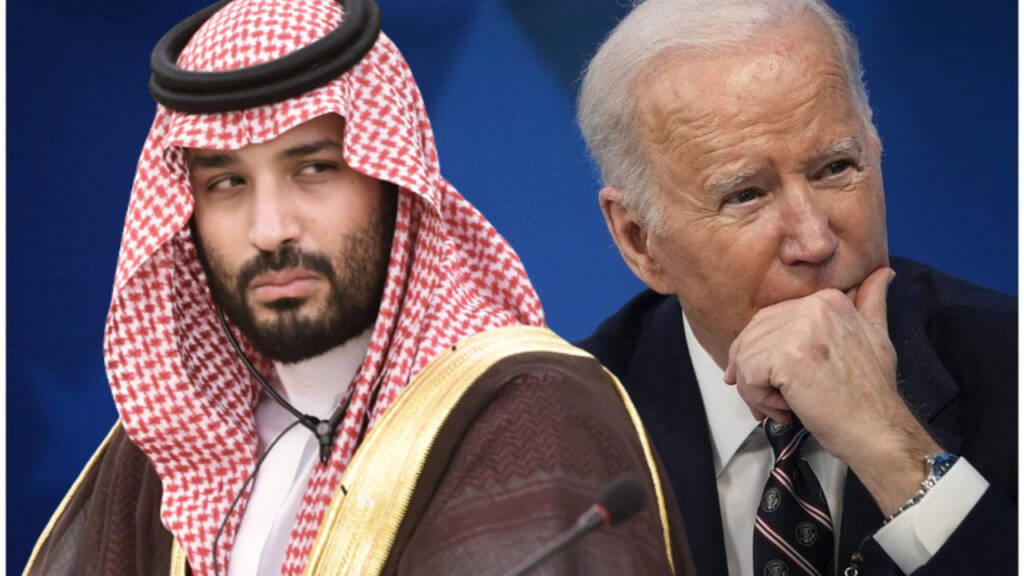The audacity of American foreign policy—its penchant for hubristic imposition—is no secret. Seemingly existing within an orbit of a geopolitical solar system, the United States has long asserted its sovereign prerogatives on the global stage.
However, a new force of nature—Saudi Arabia’s Crown Prince, Mohammed bin Salman (MBS)—recently held a reality-checking mirror to the American giant, challenging the monolith of unilateralism.
The furious MBS
The saga that stirred the political caldron is an oil-soaked chess game, a convoluted entanglement of energy production, geopolitics, and arms procurement. Angered by Saudi Arabia’s proposed cuts in oil production and plans to procure Chinese weaponry, US President Joe Biden found himself on a collision course with the tempestuous crown prince. In a swift reprisal, MBS privately threatened ‘major economic consequences’ should Biden dare to retaliate.
Despite Biden’s bravado, pledging unspecified ‘consequences’ in the wake of Saudi’s oil cut while the world grappled with towering energy prices, the fruition of his threats seems little more than an apparition, invisible to even the keenest observer. These hollow threats made last year are akin to a promissory note that lacks an issuance date; indefinitely deferred, the date remains elusive.
The Crown Prince’s retort was an icy dismissal: “I will not deal with the US administration anymore,” he declared. A hefty caveat, however, dangled in the air; he promised “major economic consequences for Washington” if there was any meddling in the Saudi’s national affairs. Indeed, the crown prince’s refusal to kowtow to Washington is a distinct illustration of his boldness.
Read More: After Iran, Saudi Arabia is joining hands with Syria
Not your typical puppet show
As some analysts have suggested, MBS’s fiery rhetoric might serve a dual purpose; not only to challenge Biden but to also carve out a more assertive Saudi global presence. By defiantly standing his ground, MBS aims to communicate a salient message to Washington: Saudi Arabia is no puppet state, and it will not be coerced into subservience by any superpower.
What underpins this political turmoil is the liquid gold that has fueled international relations for over a century—oil. As the world’s largest oil producer, Saudi Arabia commands a potent influence on the global oil markets—an influence capable of rocking the US economy to its core. The decision by Saudi Arabia to cut oil production, purportedly to stabilize the oil market, only promises to further inflame this geopolitical fracas.
Read More: Saudi Arabia’s secret deal with Greece
A Turn in Relationship
The whirlwind relationship between the US and Saudi Arabia is an intricate dance of power, politics, and economics. Despite Saudi Arabia being one of the US’ most vital allies in the Middle East for decades, the trajectory of their relationship has been buffeted by the winds of contention.
During his Presidential campaign, Biden vowed to make MBS a “pariah” over the alleged involvement in the murder of Jamal Khashoggi, a Saudi dissident and Washington Post journalist. In turn, Crown Prince Mohammed has dismissed Biden, hinting that he would prefer to work with leaders who recognize and respect the sovereignty of the Saudi Kingdom.
Now, Saudi Arabia is stepping out of America’s shadow, emphasizing its independence and asserting its place on the world stage. MBS’s latest moves not only bring this shift to light but should also serve as a wake-up call for the US and its interventionist tendencies. In this geopolitical theater, the curtain has not fallen yet; the world watches, and the show is still unfolding.
Watch More:
